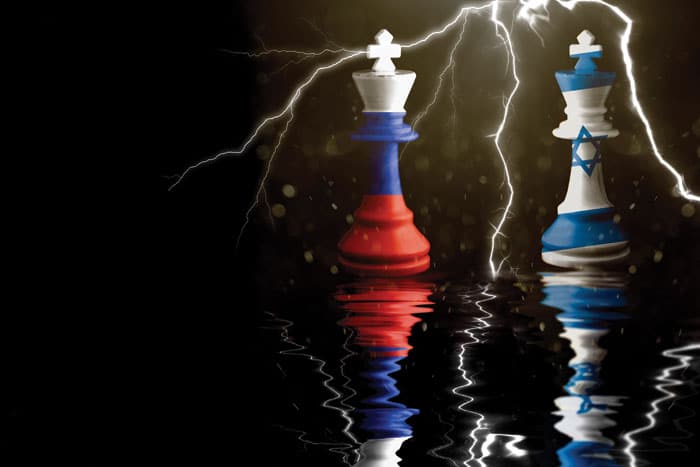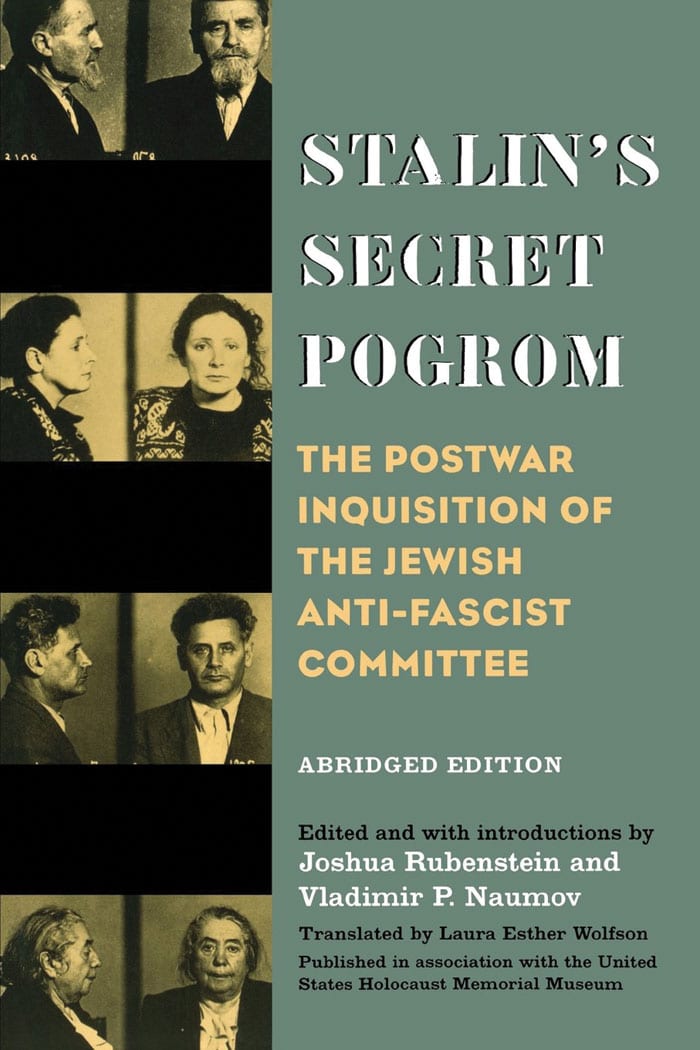 Deposit Photos
Deposit Photos Last week, The Jerusalem Post reported that Russia had ordered their branch of the Jewish Agency, the primary organization that facilitates Jews moving to Israel, to cease operations in the country. Such a decision, which Russia justifies as being due to the Jewish Agency’s “illegal obtaining of information from Russian citizens,” would add serious obstacles for Russian Jews who want to begin life anew in the Jewish homeland. “The information” that has been extracted from Russian Jews is likely to be no different from the information I gave to the Jewish Agency in my own process of moving to Israel—which includes a birth certificate, a declaration of health and proof of Jewish lineage from local rabbis. In other words, there is nothing within the Jewish Agency’s work that threatens Russia’s national security, unless of course one looks to history, and to Russia’s modern-day turmoil.
Many have hypothesized that such a move by Putin is vindictive and vengeful—that Russia is punishing its Jewish population in response to Israel’s support for Ukraine. It is true that when the Soviet Union imposed upon its Jewish population endless bureaucratic obstacles in the 1970s and ’80s to prevent them from moving to Israel, it was in part because Israel had aligned itself with the democratic and capitalist west against the Soviet/Arab bloc. But geopolitics was not the only reason for this burden. Not only did the Soviets make it impossible for Jews to leave, but also they imprisoned, threatened and intimidated thousands of activists involved in Jewish circles who dared support Israel’s existence as a center for Jewish life. Clearly, something other than international alliances was at play.
 It just so happens that at the time this news breaks, I am reading “Stalin’s Secret Pogrom,” edited by Joshua Rubenstein and Vladimir P. Naumov. The book is a compilation of transcripts from the 1952 show-trial of 15 Jews involved in the Jewish Anti-Fascist Committee, a group organized by Joseph Stalin himself to broadcast the richness of Soviet Jewish culture to the rest of the world. The 15 Jews, five of whom were prominent authors and poets, were accused of Zionist conspiracies against the Soviet Union, treason, and espionage. Though they were loyal citizens and in fact patriots, their mother country, with scant evidence, executed 13 of them, exiled one, and let the remaining Jew die in prison. This horrific event is known today as “The Night of the Murdered Poets.”
It just so happens that at the time this news breaks, I am reading “Stalin’s Secret Pogrom,” edited by Joshua Rubenstein and Vladimir P. Naumov. The book is a compilation of transcripts from the 1952 show-trial of 15 Jews involved in the Jewish Anti-Fascist Committee, a group organized by Joseph Stalin himself to broadcast the richness of Soviet Jewish culture to the rest of the world. The 15 Jews, five of whom were prominent authors and poets, were accused of Zionist conspiracies against the Soviet Union, treason, and espionage. Though they were loyal citizens and in fact patriots, their mother country, with scant evidence, executed 13 of them, exiled one, and let the remaining Jew die in prison. This horrific event is known today as “The Night of the Murdered Poets.”
There is more in common between The Night of The Murdered Poets and Russia’s decision to close the Jewish Agency than you may think.
There is more in common between The Night of The Murdered Poets and Russia’s decision to close the Jewish Agency than you may think. Both events, though the latter is (for now) not as gruesome, represent a tradition in Russian culture that extends even before the ousting of the Romanov family. In times of crisis, be it in 1892 when most citizens lived in poverty, or in 1952 when the stage was being set for the Cold War with the United States, or in 2022 when international opinion turns on the Russians for their barbaric and criminal invasion of Ukraine, the Jews become objects of suspicion.
Many Jews today are aware that charges of “disloyalty” — accusations that Jews are more loyal to Israel or to the Jewish community than to their own nation — are antisemitic. What they may not know is that the society that put this trope on the map was indeed Russia. During tumultuous periods, the Kremlin has routinely spiraled into paranoia, and has routinely become convinced that by way of their particular language, culture, religion and homeland, the Jews are plotting to undermine Russian interests. The first institutions and organizations to be targeted are those that fly in the face of hegemony, where all Russians think and act the same. In 1892, it was the shtetl, in 1952 it was the Jewish Anti-Fascist Committee and the Moscow Yiddish Theatre, and in 2022 it is The Jewish Agency.
In 1892, it was the shtetl, in 1952 it was the Jewish Anti-Fascist Committee and the Moscow Yiddish Theatre, and in 2022 it is The Jewish Agency.
Being different, it would seem, is constantly perceived as a threat to Russian security. As long as Jews dare to be Jewish, we are a fifth column, guilty of treason, of espionage, of conspiracy, just from being ourselves.
The man who knows this better than anyone is Natan Sharansky. In 1973, Sharansky was denied an exit visa from the Soviet Union to Israel on the pretenses that at one point he had received access to Soviet national security information, and therefore could not be permitted to acquire new citizenship. In other words, Russia used the same obtuse technicalities to trap Jews inside the country as they are using today. After years of advocating for fellow refuseniks, the KGB arrested and imprisoned Sharansky in 1977. In prison, he was subjected to solitary confinement, his health deteriorated, and he undertook multiple hunger strikes to protest the prohibition of his communication with the outside world. Sharansky understood then as he does today that the Soviets were not punishing him for supporting the existence of a country that was turning toward capitalism and democracy, but for publicly identifying himself as a Jew, and for his unequivocal insistence that Russian Jews were entitled to their human and national rights.
Hebrew is more than a language. It represents the distinctness of the Jewish people, which is why the Soviets outlawed its use. Judaism is more than a faith. It represents the silent rebellion of the Jewish people against a godless society, which is why the Soviets shuttered countless synagogues and religious schools. Sharansky was more than a man. He represented Jewish particularism, the Jewish condition of not fitting in perfectly with the surrounding society, which is why the Soviets locked him up with every intention of throwing away the key.
The Jewish Agency as it stands in Russia in 2022 is more than an organization that processes the paperwork of Jews who are looking to emigrate. It represents the idea that there is life outside of Russia as it barrels further down the path of illiberalism. It represents the longing to connect with one’s ethnic and religious identity. The Jewish Agency represents, as the 15 Jews of the Jewish Anti-Fascist Committee represented, as Sharansky represented, the truism that Jews will never be “just like any other Russian,” and therefore Russia has seized the opportunity to shut it down.
Blake Flayton is New Media Director and columnist for the Jewish Journal.






















 More news and opinions than at a Shabbat dinner, right in your inbox.
More news and opinions than at a Shabbat dinner, right in your inbox.